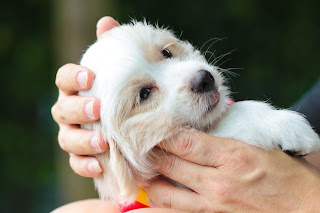What are vaccinations?
From puppies, it’s really important to stimulate your pets immune systems in an effort to produce the antibodies that they’ll need to fight off potential infection from disease. Your pet is given a weak dose of each disease.At 6-8 weeks old, your pup can begin having his first injections, followed by a second as few weeks later at 10-12 weeks of age. If they need more, your vet will let you know as a third and final injection may be necessary, however most are done and dusted after two. These vaccinations prevent against distemper, Hepatitis or infectious liver disease, or Parvovirus, Para-influenza and Leptospirosis, or infectious kidney disease.
When is best to vaccinate my puppy?
It’s best to give your new family member a week to get settled into their new environment and take time to adjust to being away from their mother before you begin the vaccinations. This means that any diseases that are coming to light can be treated before starting the course.Why are vaccinations important?
It’s really important to make sure that before your pup is vaccinated – and until two weeks afterwards – you should ensure that he doesn’t come into contact with any other animals who could be unvaccinated. Try not to pop them down in areas where unvaccinated dogs may have been present, like in the local park, or on a quick trip to the corner shop. Please do feel free to take them outside in this time so that they can become familiar with new smells and surrounding, although ensure that you carry them at all times.If your pet is under the weather when the vaccination process is due to commence, the vet may decide to leave the vaccination until the puppy has fully recovered to ensure they are not affected. Following on from this, if your puppy seems to be acting differently and shows signs of being unwell after the vaccination, feel free to contact your vet immediately.
Is that one vaccination enough?
Throughout your dog’s life, you should ensure that some vaccinations are up to date. Kennel cough is one that needs to be completed regularly and if your pet travels abroad, a rabies vaccination is essential.Should you need additional advice on vaccinations, please feel free to contact our 24/7 Petwise helpline on 0800 456 1164.
For more top tips, fun videos and to share pictures of your pet, like us on Facebook and follow us on Twitter.






